Articles by Luciano Costa, MD, PhD
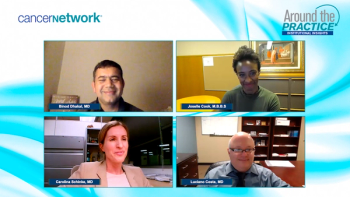
Drs Luciano Costa and Binod Dhakal discuss combining bispecific antibodies with gamma secretase inhibitors for the treatment of relapsed/refractory multiple myeloma, but trials show limited benefit and added toxicity; more promising are combinations with immunomodulators like isatuximab.
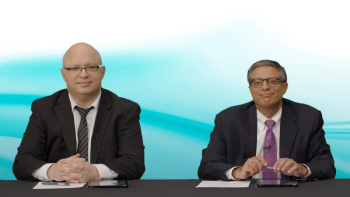
Adverse Events With Bispecific Therapy: Dysgeusia, Skin, and Nail Changes
BySagar Lonial, MD, FACP,Luciano Costa, MD, PhD,Cesar Rodriguez, MD,Donna Catamero, ANP-BC, OCN, CCRC Overview of challenges in managing adverse events associated with bispecific therapy in multiple myeloma, including dysgeusia, skin toxicity, and nail changes patients may experience.
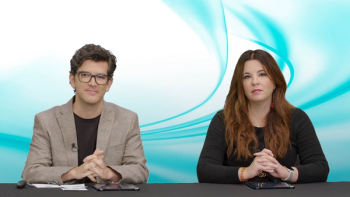
Bispecific Therapies in Multiple Myeloma: Impact on Real-World Practice
BySagar Lonial, MD, FACP,Luciano Costa, MD, PhD,Cesar Rodriguez, MD,Donna Catamero, ANP-BC, OCN, CCRC Experts share how the availability of three new bispecific therapies has transformed myeloma patient care, offering a lifeline to those previously without treatment options and showcasing positive responses in various patient populations.
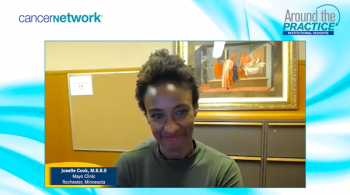
Joselle Cook, M.B.B.S., discusses the RedirecTT-1 trial combining teclistamab and talquetamab for patients with relapsed/refractory multiple myeloma, noting high response rates even in high-risk myeloma but concerns about long-term resistance.
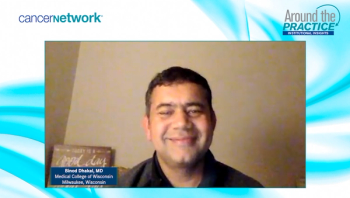
Dr Binod Dhakal discusses response rates and toxicities seen with recently approved bispecific antibodies talquetamab in patients with heavily pretreated multiple myeloma, noting high response rates even after CAR-T, but also unique side effects.
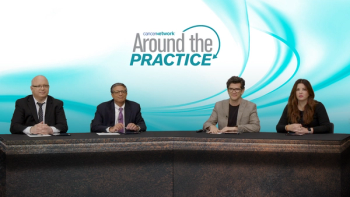
Bispecific Therapies in RRMM: Teclistamab, Talquetamab, and Elranatamab Updates
BySagar Lonial, MD, FACP,Luciano Costa, MD, PhD,Cesar Rodriguez, MD,Donna Catamero, ANP-BC, OCN, CCRC Insight into the latest updates on three approved bispecific therapies in the context of relapsed and refractory multiple myeloma, including teclistamab, talquetamab, and elranatamab, discussing response rates, administration, and side effects.

Patient Scenario: Management of Multiple Myeloma With Talquetamab Therapy
BySagar Lonial, MD, FACP,Luciano Costa, MD, PhD,Cesar Rodriguez, MD,Donna Catamero, ANP-BC, OCN, CCRC Dive into a compelling case study showcasing the effective use of talquetamab therapy in the management of relapsed multiple myeloma, discussing responses, side effects, and treatment outcomes.
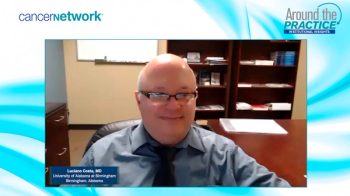
Dr Luciano Costa discusses treatment options for patients with multiple myeloma with early vs late relapse, noting that those with early aggressive relapse have limited options and often rapidly exhaust available therapies, emphasizing the need for newer agents like bispecific antibodies.

Binod Dhakal, MD, presents the case of a young man with aggressive relapsed multiple myeloma to the panel for discussion.

Earlier Use of Novel Therapeutics in Multiple Myeloma Treatment Pathways
BySagar Lonial, MD, FACP,Luciano Costa, MD, PhD,Cesar Rodriguez, MD,Donna Catamero, ANP-BC, OCN, CCRC Explore the potential in earlier use of novel therapy in multiple myeloma, including immunotherapy, bispecifics, and CAR-T therapies, with promising responses and potential paradigm shifts.

Evolving Treatment Paradigms in Relapsed/Refractory Multiple Myeloma
BySagar Lonial, MD, FACP,Luciano Costa, MD, PhD,Cesar Rodriguez, MD,Donna Catamero, ANP-BC, OCN, CCRC Join moderator Sagar Lonial, MD, FACP, and a panel of experts as they discuss recent updates in the management of relapsed and refractory multiple myeloma, exploring impact on clinical practice.

Experts discuss key data updates in real-world newly diagnosed multiple myeloma practices, and how these findings may change the treatment paradigm.
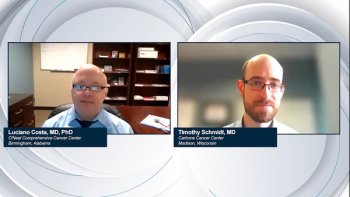
Dr. Costa and Dr. Schmidt consider promising emergent treatment options and current unmet needs in the NDMM treatment landscape.

Experienced clinicians share their perspectives on maintenance therapy for patients with NDMM.

Subject-matter experts share their perspectives on treatment selection for patients with NDMM.

A summary of updates from the GRIFFIN trial evaluating D-RVd in clinically relevant NDMM patient subgroups.

Thoughtful discussion centered around recently presented updates to the MASTER trial.

Luciano Costa, MD, PhD and Timothy Schmidt, MD introduce treatment regimen options and risk stratification for patients with transplant-eligible NDMM.
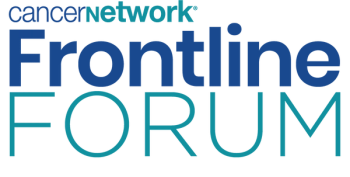
Following the 2022 American Society of Clinical Oncology Annual Meeting, experts in multiple myeloma discuss real-world evidence as it relates to the present-day treatment of patients.
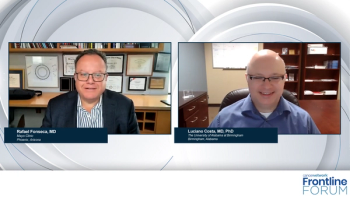
Drs Costa and Fonesca close out their discussion by highlighting the endemic racial disparities in multiple myeloma treatment.

A look at some of the unmet needs in transplant-ineligible multiple myeloma, particularly within the unfit patient population.

An expert describes how he determines treatment duration and discontinuation for transplant-ineligible multiple myeloma in his clinical practice.

Luciano Costa, MD, PhD, discusses his maintenance therapy strategies for patients with transplant-ineligible multiple myeloma.

Dr Rafael Fonesca illustrates how he selects therapies for patients with transplant-ineligible multiple myeloma based on real-world evidence.

A key opinion leader explains whether doublet regimens still have a place in transplant-ineligible multiple myeloma treatment.

Rafael Fonseca, MD, describes key data from the MAIA and SWOG 0777 studies investigating triplet regimens in multiple myeloma treatment, and how the results compare.

Dr Luciano Costa provides an overview of the currently available treatment options for patients with transplant-ineligible, newly diagnosed multiple myeloma.
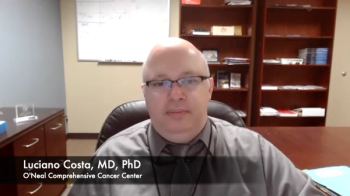
Luciano Costa, MD, PhD, spoke about the potential application of daratumumab, carfilzomib, lenalidomide, and dexamethasone for multiple myeloma in a real-world setting.

Luciano Costa, MD, PhD, spoke about how the results in the final primary analysis of the MASTER trial with daratumumab, carfilzomib, lenalidomide, and dexamethasone in multiple myeloma were not what he expected.

Luciano Costa, MD, PhD, spoke about the primary end point analysis for the MASTER trial examining daratumumab, carfilzomib, lenalidomide, and dexamethasone in multiple myeloma.













